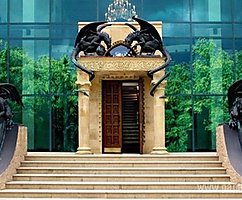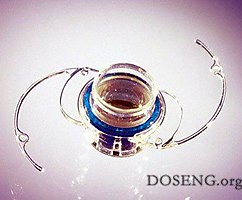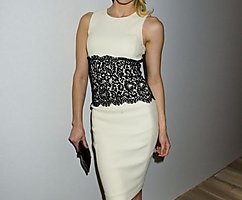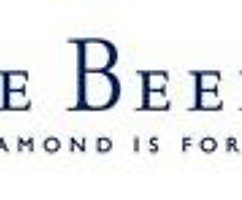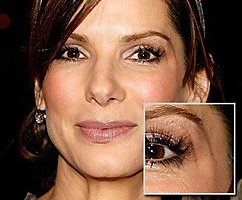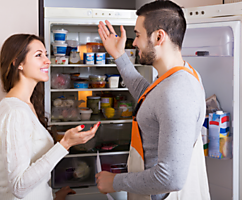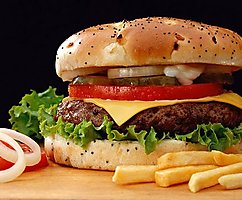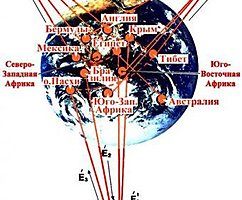How not to spend extra money in store — 10 simple rules
 Bashny.Net
Bashny.Net
Seventy nine million six hundred seventy eight thousand four hundred ninety one
Shops announced discounts of up to 50%, which means that the buyer ought to be careful and not fall for the tricks of sellers.
Before we begin to understand the commercial "science" merchandising be warned – these tips are intended only for those who are not going to pay without looking. We are not Europeans, count every penny, but a reasonable saving your hard-earned money – a sign of the cultural citizen.
Rule 1. Take a basket instead of a trolley
The doors themselves are parted to the side and in front of us – Nickel plated trolley on wheels, designed to buy at least a sack of potatoes or hundreds of cans of instant coffee, sausage and cheese, a dozen packets of milk and a dozen loaves of bread. And we wanted to buy 200 grams of "doctor" for dinner.
The trolley on wheels is very convenient, but very dangerous. Her and I want to fill to the brim with all sorts of junk food today and spend all the money that was with them. So better to take a basket or ignore the sellers, disapprovingly staring at your one and only bottle of milk in a huge truck. By the way, if you do not have unlimited credit, for a small purchase, pay with cash, not card. Of course, this is outdated, but money will be better off – with invisible money on the card part is easy, but at the end of the month I can not understand what happened to the half.
Pay your Bank card only for large purchases, small it is better to pay in cash.
Rule 2. Going to the supermarket, immediately move in the desired Department, select scheduled, and then go to other halls. But better head straight to the cashier.
Included in the first division, and it's on merchandising, here we begin to seduce. Please note – different types of goods are not located somewhere, and "the mind". And not for our mind, just like more to sell. Surely you went to the store intending to buy something specific, often the most useful and successful products. This is what, says the merchandiser, they'll buy the cheap stuff − cereals, sugar, bread, cooking oil, canned vegetables, baby food, fine confectionaries, soda, juice, mineral water – and then to the cashier? Do not go! These products he put in the beginning of the trading floor, and closer to the end. And the most expensive and profitable goods he will put on the road, and the buyer anything and will buy coffee, expensive imported canned goods, elite varieties of olive oil, something else. And to a simple loaf will have to go like a maze.
Be careful of what you put in your cart at the supermarket.
Rule 3. Take only the most necessary, but better make a list in advance
Not being distracted on purpose put forward bright packaging "new" products – they are the same, only more expensive. Beware of sets (coffee + mug, razor + foam). A mug you already have, foam is not yet over, but a new razor can be bought cheaper on a nearby shelf. Besides, any savings probably won't – why would they do you presents?
Any special tricks in the departments of "milk", meat, fish and so on usually do not apply, except that, as usual, expensive products put closer, but cheap – out. The choice is yours, do not buy just for the striking "original" packaging and check the expiration date.
Rule 4. Do not go to the supermarket hungry!
Always aromatize stores jewelry, expensive clothes or even casual shoes, and also to attract additional buyers. In a classic study of the market of Shoe has been shown that in the Department with the artificial smell of leather the same shoes I bought and a half times more. And the shelf with the instant, almost not smelling coffee can "perfume" aroma of freshly roasted Arabica.
Do not go to the supermarket hungry, it can greatly increase your expenses. Photo: thinkstockphotos.com
Rule 5. Do not trust smells!
The same with music. Somewhere merchandisers learned that pleasant melody induces the buyer to unnecessary purchases. And they make Vivaldi or retro in different departments of the store, and many fall – but not because you're smart and Thrifty buyer?
Special conversation – a sales. All these boxes and labels "bargain", "50%", "two for the price of one". Especially often sell expensive alcohol, off-season clothes, all sorts of stale products.
Before you buy thing, think carefully whether it is necessary for you.
Rule 6. Before buying products labeled "bargain", make sure there are no similar products in the relevant sections for the same, and even lower prices.
For example, we have imported whiskey is much more expensive than abroad, but the quality of almost all the varieties are practically identical. It is often better to buy the source a less expensive variety than a cheaper road – who knows why they arranged the sale. And suddenly whiskey "left"?
Courses for prospective sellers are taught that the best sold product standing on a shelf at eye level of the buyer, i.e. at a height of 1.5–1.7 meters. It's true, so it was on these shelves the sellers put more expensive wines, packing of imported cheeses, high-quality coffee, and even soda.
Rule 7. At the lower and upper shelves is a product optimal ratio price-quality.
In the arrangement of goods used another trick – sweets, and colorful toys are put on shelves at the eye height of the child. If you refuse to buy it – you will start to whine and cry, you will be uncomfortable in front of others. And this kinder surprise him you will buy, wasted money and spoiling teeth.
Rule 8. If possible, go shopping without the kids.
The best sellers area in the store – at the cash register. However quickly worked the cashier, no matter how much Cass was not in the store – there is always a queue. But even 5 minutes is a lot longer than we spend around a rack with a coffee or a counter with meats. My eyes hit the batteries, lighters, cigarettes, lollipops, keychains, some bottles of antipohmelin, toothpicks, candy and so on. This small things sellers called the goods of impulsive demand. Like inexpensive, but not very much was necessary. How not to fall for this ploy?
Rule 9. Standing in the checkout line, occupy yourself with something, not to be distracted by the shelves with unnecessary products.
For example, to carefully study the labels of all of their purchases, once again check the expiration date, but just to read a newspaper. And in a long queue and strike up an acquaintance.
And the last one. If you decide to consult with the seller – not about technical data of a complex product, and that it is better to buy, in advance, consider that he speaks not the truth. No, he could honestly tell you the best option to buy, it happens with us, the people we have in the mass, good-natured. To decide in the end you still.
Rule 10. After hearing the recommendation of the seller, do not settle immediately for the purchase and give yourself time to think and weigh all the "pros" and "cons".
Written entire papers and manuals, how to seduce a buyer and experienced sellers do not work worse than Gypsy. For interest how to do something without purpose to buy something, take a walk through your supermarket and look at the balance of goods, the assortment, the location of the shelves with discounted goods on the behavior of sellers. But we are not fooled!
Source: domashniy.ru/
Shops announced discounts of up to 50%, which means that the buyer ought to be careful and not fall for the tricks of sellers.
Before we begin to understand the commercial "science" merchandising be warned – these tips are intended only for those who are not going to pay without looking. We are not Europeans, count every penny, but a reasonable saving your hard-earned money – a sign of the cultural citizen.
Rule 1. Take a basket instead of a trolley
The doors themselves are parted to the side and in front of us – Nickel plated trolley on wheels, designed to buy at least a sack of potatoes or hundreds of cans of instant coffee, sausage and cheese, a dozen packets of milk and a dozen loaves of bread. And we wanted to buy 200 grams of "doctor" for dinner.
The trolley on wheels is very convenient, but very dangerous. Her and I want to fill to the brim with all sorts of junk food today and spend all the money that was with them. So better to take a basket or ignore the sellers, disapprovingly staring at your one and only bottle of milk in a huge truck. By the way, if you do not have unlimited credit, for a small purchase, pay with cash, not card. Of course, this is outdated, but money will be better off – with invisible money on the card part is easy, but at the end of the month I can not understand what happened to the half.
Pay your Bank card only for large purchases, small it is better to pay in cash.
Rule 2. Going to the supermarket, immediately move in the desired Department, select scheduled, and then go to other halls. But better head straight to the cashier.
Included in the first division, and it's on merchandising, here we begin to seduce. Please note – different types of goods are not located somewhere, and "the mind". And not for our mind, just like more to sell. Surely you went to the store intending to buy something specific, often the most useful and successful products. This is what, says the merchandiser, they'll buy the cheap stuff − cereals, sugar, bread, cooking oil, canned vegetables, baby food, fine confectionaries, soda, juice, mineral water – and then to the cashier? Do not go! These products he put in the beginning of the trading floor, and closer to the end. And the most expensive and profitable goods he will put on the road, and the buyer anything and will buy coffee, expensive imported canned goods, elite varieties of olive oil, something else. And to a simple loaf will have to go like a maze.
Be careful of what you put in your cart at the supermarket.
Rule 3. Take only the most necessary, but better make a list in advance
Not being distracted on purpose put forward bright packaging "new" products – they are the same, only more expensive. Beware of sets (coffee + mug, razor + foam). A mug you already have, foam is not yet over, but a new razor can be bought cheaper on a nearby shelf. Besides, any savings probably won't – why would they do you presents?
Any special tricks in the departments of "milk", meat, fish and so on usually do not apply, except that, as usual, expensive products put closer, but cheap – out. The choice is yours, do not buy just for the striking "original" packaging and check the expiration date.
Rule 4. Do not go to the supermarket hungry!
Always aromatize stores jewelry, expensive clothes or even casual shoes, and also to attract additional buyers. In a classic study of the market of Shoe has been shown that in the Department with the artificial smell of leather the same shoes I bought and a half times more. And the shelf with the instant, almost not smelling coffee can "perfume" aroma of freshly roasted Arabica.
Do not go to the supermarket hungry, it can greatly increase your expenses. Photo: thinkstockphotos.com
Rule 5. Do not trust smells!
The same with music. Somewhere merchandisers learned that pleasant melody induces the buyer to unnecessary purchases. And they make Vivaldi or retro in different departments of the store, and many fall – but not because you're smart and Thrifty buyer?
Special conversation – a sales. All these boxes and labels "bargain", "50%", "two for the price of one". Especially often sell expensive alcohol, off-season clothes, all sorts of stale products.
Before you buy thing, think carefully whether it is necessary for you.
Rule 6. Before buying products labeled "bargain", make sure there are no similar products in the relevant sections for the same, and even lower prices.
For example, we have imported whiskey is much more expensive than abroad, but the quality of almost all the varieties are practically identical. It is often better to buy the source a less expensive variety than a cheaper road – who knows why they arranged the sale. And suddenly whiskey "left"?
Courses for prospective sellers are taught that the best sold product standing on a shelf at eye level of the buyer, i.e. at a height of 1.5–1.7 meters. It's true, so it was on these shelves the sellers put more expensive wines, packing of imported cheeses, high-quality coffee, and even soda.
Rule 7. At the lower and upper shelves is a product optimal ratio price-quality.
In the arrangement of goods used another trick – sweets, and colorful toys are put on shelves at the eye height of the child. If you refuse to buy it – you will start to whine and cry, you will be uncomfortable in front of others. And this kinder surprise him you will buy, wasted money and spoiling teeth.
Rule 8. If possible, go shopping without the kids.
The best sellers area in the store – at the cash register. However quickly worked the cashier, no matter how much Cass was not in the store – there is always a queue. But even 5 minutes is a lot longer than we spend around a rack with a coffee or a counter with meats. My eyes hit the batteries, lighters, cigarettes, lollipops, keychains, some bottles of antipohmelin, toothpicks, candy and so on. This small things sellers called the goods of impulsive demand. Like inexpensive, but not very much was necessary. How not to fall for this ploy?
Rule 9. Standing in the checkout line, occupy yourself with something, not to be distracted by the shelves with unnecessary products.
For example, to carefully study the labels of all of their purchases, once again check the expiration date, but just to read a newspaper. And in a long queue and strike up an acquaintance.
And the last one. If you decide to consult with the seller – not about technical data of a complex product, and that it is better to buy, in advance, consider that he speaks not the truth. No, he could honestly tell you the best option to buy, it happens with us, the people we have in the mass, good-natured. To decide in the end you still.
Rule 10. After hearing the recommendation of the seller, do not settle immediately for the purchase and give yourself time to think and weigh all the "pros" and "cons".
Written entire papers and manuals, how to seduce a buyer and experienced sellers do not work worse than Gypsy. For interest how to do something without purpose to buy something, take a walk through your supermarket and look at the balance of goods, the assortment, the location of the shelves with discounted goods on the behavior of sellers. But we are not fooled!
Source: domashniy.ru/
Tags
See also
Best Work - $ 10 (which is known not extra!)
Cheat how to return the goods to the European e-shop in Russian realities.
Three simple rules of Ninel Blokhina: How to look 68 to 35
Easy pregnancy: how not to gain weight during the childbearing.
How to become the happiest person on the planet in 4 easy steps
Let's not enrage the Universe
Not besite the Universe!
Creative sweaters


